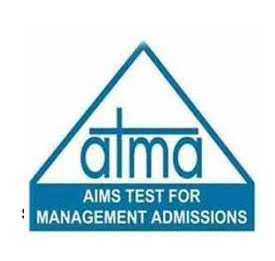PhD Electronics and Communication Engineering is a comprehensive doctoral research program of 3-5 years for those seeking to conduct advanced research and contribute original knowledge in electronic systems design, communication technologies, signal processing, VLSI design, and emerging technologies like 5G and IoT. This program trains students to become leading researchers and innovators in both electronics and communications, equipped with deep theoretical knowledge, advanced research skills, and expertise in cutting-edge technologies.
To be eligible for a PhD in Electronics and Communication Engineering, candidates must have completed M.Tech/M.E./M.Sc. in ECE or related fields with at least 55% aggregate marks from a recognized university. Admission is generally based on performance in national entrance exams like GATE/UGC NET/CSIR NET, followed by a written test and a personal interview conducted by respective institutes.
The average course fee for PhD Electronics and Communication Engineering in India ranges between INR 35,000 – INR 2,40,000/ year, depending on the university and its infrastructure. Popular institutes offering this course include IIT Delhi, IIT Bombay, IISc Bangalore, IIIT Hyderabad, and many more.
Ph.D graduates can pursue career roles like University Professor, Research Scientist, VLSI Design Engineer, RF Engineer, Technical Consultant, or Product Manager in technology companies. The initial average salary ranges from INR 8 LPA – INR 25 LPA, with higher packages for those joining top-tier institutions or multinational technology companies.
Table of Contents
- PhD Electronics and Communication Engineering Key Highlights
- What is PhD in Electronics and Communication Engineering?
- Why Study PhD Electronics and Communication Engineering?
- Who Should Study PhD Electronics and Communication Engineering?
- PhD Electronics and Communication Engineering Eligibility Criteria
- PhD Electronics and Communication Engineering Entrance Exams 2025
- PhD Electronics and Communication Engineering Colleges in India
- PhD Electronics and Communication Engineering Admission Process
- PhD Electronics and Communication Engineering Syllabus
- PhD Electronics and Communication Engineering Career Opportunities in India
- PhD Electronics and Communication Engineering FAQs
PhD Electronics and Communication Engineering Key Highlights
Here are some of the basic key highlights for PhD Electronics and Communication Engineering:
What is PhD in Electronics and Communication Engineering?
Ph.D in Electronics and Communications Engineering course is a specialized doctoral research program in India that combines advanced study of electronic devices, circuits, systems design with cutting-edge communication technologies including wireless networks, signal processing, optical communications, and emerging fields like 5G/6G networks and IoT systems. It's perfect for students who wish to conduct original research at the intersection of electronics hardware and communication software, develop innovative technologies, or contribute to India's growing semiconductor and telecommunications sectors.
This program typically includes advanced coursework in research methodology, comprehensive examinations, and extensive doctoral research culminating in an original dissertation.
Why Study PhD Electronics and Communication Engineering?
PhD Electronics and Communication Engineering course allows you to become a leading researcher and innovator in one of the fastest-growing technology sectors, positioning you for diverse career opportunities in India's expanding semiconductor, telecommunications, and high-tech industries. Few of the reasons to pursue Ph.D. in Electronics and Communications Engineering are given below:
- You get comprehensive research training in both traditional electronics and modern communication technologies that distinguishes you from masters-level graduates and positions you for leadership roles in technology innovation.
- It builds a strong foundation for those aiming to pursue careers in academia, R&D leadership, technology consulting, or entrepreneurship in high-tech startups focusing on emerging technologies like AI chips, 5G systems, or IoT devices.
- You'll develop advanced research methodologies, critical thinking, and innovation skills that are highly valued by top-tier technology companies, research institutions, and government organizations like ISRO and DRDO.
- Perfect for research careers - you qualify for university professor positions, principal scientist roles in national laboratories, chief technology officer positions in technology companies, and senior research positions in multinational corporations.
- Opens up opportunities in cutting-edge research areas like quantum computing, neuromorphic chips, advanced wireless communication systems, and next-generation semiconductor technologies that are shaping the future of technology.
- It enhances your ability to secure research funding, lead interdisciplinary teams, publish in top-tier journals, and establish yourself as a recognized expert in specialized technology domains.
Who Should Study PhD Electronics and Communication Engineering?
PhD Electronics and Communication Engineering is ideal for candidates who want to conduct advanced research in electronics and communication technologies and specialize in areas like VLSI design, wireless communications, signal processing, or emerging technologies like quantum electronics and 6G communications. This program suits:
- Students aiming for careers in academic research, university professorship, or leadership positions in national research laboratories like ISRO, DRDO, and CSIR institutes.
- Students interested in developing next-generation technologies in areas like 5G/6G communication systems, AI-enabled electronics, advanced semiconductor devices, or IoT system architectures.
- Individuals seeking to enhance their research capabilities for senior roles in technology companies like Intel, Qualcomm, NVIDIA, or Indian technology giants like TCS Research and Wipro Technologies.
- Those with strong foundations in electronics and communication engineering who want to pivot into emerging interdisciplinary research areas combining ECE with AI, biomedical engineering, or sustainable technology.
- Candidates aspiring to become technology entrepreneurs, establish research-based startups, or lead innovation teams in established technology companies focusing on cutting-edge electronic and communication systems.
- Students who are analytically minded, possess strong mathematical and programming skills, and have passion for solving complex technological challenges that impact society and industry.
PhD Electronics and Communication Engineering Eligibility Criteria
Below are the detailed eligibility criteria for admission to PhD Electronics and Communication Engineering. Candidates must fulfill all the conditions mentioned below:
- The applicant must have completed M.E/M.Tech in Electronics and Communication Engineering or related fields (VLSI, Signal Processing, Communication Systems, Microelectronics) from a recognized university.
- A minimum aggregate of 55% marks (or equivalent CGPA of 6.0 on 10-point scale) is required in the qualifying exam. For SC/ST candidates, there is typically a 5% relaxation (50% minimum).
- Admission is usually based on valid GATE/UGC NET/CSIR NET scores, followed by written test and interview conducted by the respective institutions. Some institutes may accept JEST scores for specific research areas.
- Candidates with M.Sc. in Physics, Mathematics, Electronics, or related fields may also be considered with valid GATE/NET qualification and demonstrated research aptitude.
- Final-year M.Tech students can also apply, provided they submit proof of completion before admission and meet the minimum percentage requirements.
PhD Electronics and Communication Engineering Entrance Exams 2025
Most universities and colleges in India offer admission to PhD Electronics and Communication Engineering through national entrance tests, institutional exams, or a combination of both. Below is a tentative list of common entrance exams for doctoral admissions in ECE:
PhD Electronics and Communication Engineering Colleges in India
Here are some of the most reputed colleges and universities offering PhD Electronics and Communication Engineering in India:
PhD Electronics and Communication Engineering Admission Process
PhD Electronics and Communication Engineering admission at top universities follows a systematic process. Here' the step by step admission process of IIT Delhi for your reference:
Step 1: Register for the relevant national entrance exams such as GATE, UGC NET, or CSIR NET. During registration, select Electronics and Communication Engineering as your preferred discipline.
Step 2: Create an account on IIT Delhi’s Ph.D. admission portal using your email ID and mobile number to access the online application system.
Step 3: Log in and complete the detailed online application form. Provide accurate academic credentials, research interests, preferred faculty advisor, and program-specific information.
Step 4: Submit your application within the published deadlines. Apply for the entrance exams within their registration windows (typically February to May for GATE, March to July for NET). Select your preferred research specialization and examination centers.
Step 5: Upload all required scanned documents as per specifications, including M.Tech/M.E./M.Sc. mark sheets and certificates, valid GATE/NET scorecards, transfer certificates, research statements, passport-size photographs, and category certificates (if applicable).
Step 6: Pay the non-refundable application fee online via debit/credit card, UPI, or net banking, typically ranging between INR 1,000 and INR 2,500, depending on category and specific admission cycle.
Step 7: After the entrance exam results, shortlisted candidates will be invited for a written test and personal interview. The interview assesses technical knowledge, research aptitude, and the proposed research area.
Step 8: Selected candidates receive admission offers via email or through the official portal. You must complete final verification by submitting any pending documents and paying the first-semester fee.
Step 9: Upon confirmation, admission is finalized. Attend the orientation program, register for the first-semester coursework, and begin your doctoral research under faculty guidance at IIT Delhi.
Documents Required:
- M.Tech/M.E./M.Sc. mark sheets and degree certificates
- GATE/NET/CSIR NET score cards
- Transfer certificate from previous institution
- Research statement/statement of purpose
- Valid ID proof (Aadhaar/PAN/Passport)
- Category certificate (SC/ST/OBC if applicable)
- No Objection Certificate (for working professionals)
PhD Electronics and Communication Engineering Syllabus
PhD Electronics and Communication Engineering is typically a 3-5 year comprehensive research program designed to provide students with advanced knowledge in electronics and communication technologies. The syllabus varies across institutions, but here's the syllabus of IIT Delhi for your reference:
Coursework Phase (First 1–2 Semesters)
Research Phase
Teaching and Seminars
Thesis & Defense
PhD Electronics and Communication Engineering Career Opportunities in India
A PhD Electronics and Communication Engineering opens doors to diverse and lucrative career opportunities across academia, industry, research organizations, and entrepreneurship in India's rapidly growing technology sector. Here's a look at prominent career paths:
PhD Electronics and Communication Engineering FAQs
How does a Ph.D. in Electronics and Communications Engineering prepare graduates for emerging technologies like 6G and quantum communication?
The Ph.D. program equips students with deep theoretical knowledge and advanced research skills in wireless communication, signal processing, and photonics. Research often focuses on next-generation communication paradigms such as 6G networks, quantum encryption, and quantum key distribution, positioning graduates at the forefront of innovations shaping the future of telecom and secure communications.
What are common research specializations available for a Ph.D. in Electronics and Communications Engineering?
Popular specializations include VLSI design, wireless communication, signal processing, embedded systems, RF and microwave engineering, optical communication, IoT, and AI/ML applications in communication systems. Each specialization involves coursework and research tailored to current industrial and academic trends.
How do Ph.D. programs in Electronics and Communications Engineering support international collaboration?
Many programs encourage and facilitate collaboration with global research institutions through joint projects, conferences, and exchange programs. Such exposure enriches the research experience, allows access to cutting-edge facilities, and helps candidates build global academic networks crucial for future career advancement.
How do Ph.D. students in Electronics and Communications Engineering secure funding for their research in India?
Many receive fellowships such as JRF, SRF, DST-INSPIRE, CSIR-UGC NET, and institute-specific scholarships. Students may also participate in funded projects with industry partners or government agencies, which provide research grants and often cover stipends, helping them focus fully on their research work.











